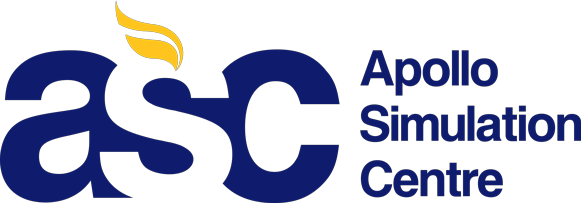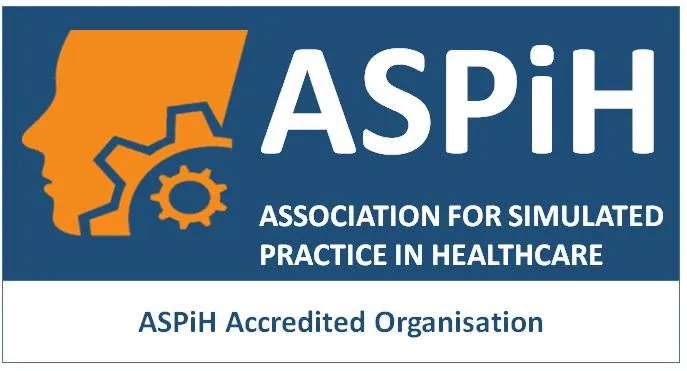In today’s rapidly advancing healthcare landscape, ensuring that healthcare professionals are well-prepared to deliver safe and effective patient care is more critical than ever. As medical knowledge expands and technologies evolve, the demand for highly skilled healthcare providers who can navigate complex clinical scenarios with confidence and precision has surged. To meet these demands, simulation-based training has emerged as a transformative tool in medical education, reshaping how professionals are trained and ultimately improving patient outcomes.

The Evolution of Simulation in Medical Education
Simulation in healthcare has evolved from a supplementary educational tool to a cornerstone of medical training. Initially, simulation was employed in isolated scenarios, such as teaching surgical techniques or basic life support. However, with the growing recognition of its benefits, simulation has become integral to comprehensive healthcare training programs across various disciplines.
At its core, simulation training provides a controlled, risk-free environment where healthcare professionals can practice and refine their skills. Unlike traditional training methods, which often rely heavily on theoretical knowledge and sporadic hands-on opportunities, simulation offers a hands-on approach that bridges the gap between classroom learning and real-world clinical practice. This approach allows trainees to develop competence in both routine procedures and complex, high-stakes situations—without the fear of causing harm to actual patients.
Enhancing Clinical Skills Through Realistic Scenarios
One of the most significant advantages of simulation-based training is its ability to recreate realistic clinical scenarios that healthcare professionals may encounter in their practice. These scenarios range from common procedures, such as intravenous catheter insertion, to rare but critical situations, such as managing a cardiac arrest or responding to a mass casualty event.
By immersing trainees in these lifelike situations, simulation training allows them to develop critical thinking, decision-making, and problem-solving skills. For example, during a simulated cardiac arrest, trainees must work as a team to assess the patient’s condition, perform CPR, administer medications, and use a defibrillator—all while managing the stress and time constraints that come with such an emergency. This hands-on experience not only builds technical skills but also prepares healthcare professionals to remain calm and effective under pressure, a crucial ability in real-life medical emergencies.
Reducing Medical Errors Through Repetitive Practice
Medical errors pose a critical threat to patient safety, contributing to thousands of preventable deaths annually. A 2016 study by Johns Hopkins University identified medical errors as the third leading cause of death in the US, accounting for over 250,000 deaths each year. A significant contributor to these errors is the lack of experience or proficiency in performing specific tasks. Simulation training directly addresses this issue by enabling healthcare professionals to practice and refine their skills repeatedly, until mastery is achieved.
For instance, a surgeon-in-training can perform a simulated laparoscopic surgery numerous times, refining their technique and gaining confidence without the risk of harming a patient. Similarly, a nurse can practice administering medication or performing wound care on a high-fidelity manikin, ensuring they are fully prepared for the complexities of patient care.
Fostering Effective Communication and Teamwork
Beyond technical competence, effective communication and teamwork are essential components of patient safety. Studies have shown that many medical errors stem not from a lack of clinical knowledge but from breakdowns in communication among healthcare teams. Simulation-based training plays a pivotal role in improving interprofessional collaboration and fostering clear, effective communication.
Team-based simulation exercises, such as those involving emergency resuscitations or surgical procedures, require healthcare professionals from different disciplines to work together in a coordinated manner. These exercises help team members understand each other’s roles, improve their communication skills, and develop strategies for effective teamwork. By practicing these skills in a simulated environment, healthcare teams are better prepared to work together seamlessly in real clinical settings, reducing the likelihood of errors and improving patient outcomes.
The Role of Technology in Simulation Training
Advances in technology significantly amplified the power and effectiveness of simulation training in healthcare. Modern simulation centres are equipped with high-fidelity simulators that closely mimic a wide array of medical conditions and patient responses. These simulators provide a hyper-realistic environment in which trainees can practice complex procedures and critical decision-making, mirroring real-world clinical scenarios.
For example, high-fidelity manikins used in simulation training can exhibit physiological responses such as changes in heart rate, blood pressure, and oxygen saturation. This real-time feedback allows trainees to experience the consequences of their actions in real-time, reinforcing the importance of timely and accurate interventions.
Moreover, many simulation platforms now offer real-time data tracking and analytics, enabling instructors to closely monitor trainee performance. These data-driven insights can highlight areas for improvement and allow for the customisation of training programmes to address specific gaps in knowledge or skill. The result is a highly personalised learning experience that not only enhances competence but also ensures each healthcare professional is better equipped to meet the demands of their role.
Simulation Across Various Medical Specialties
Simulation training is revolutionising healthcare education across multiple specialities, making it an invaluable tool for enhancing skills and reducing errors. Its application extends across various domains, from surgery to emergency medicine, nursing, and paediatrics, helping healthcare professionals develop their expertise in a safe and controlled environment.
Surgical Training: Surgeons can refine complex techniques, such as robotic surgeries, through simulation. This is especially valuable in specialties like neurosurgery and cardiac surgery, where precision is crucial. By practicing in a risk-free setting, surgeons can perfect their skills before performing on real patients.
- Emergency Medicine: Simulation prepares emergency medical teams for high-pressure situations such as trauma care or mass casualty events. It allows them to improve response times and decision-making abilities, which are critical in saving lives in emergency situations.
- Nursing Education: Nurses play a critical role in patient care, and simulation helps them develop essential skills such as patient assessment, medication administration, and wound care. It also prepares them for managing complex patient cases in intensive care units (ICUs) and other critical settings.
- Paediatrics: In paediatric care, where young patients may be unable to articulate their symptoms, simulation training helps healthcare professionals develop accurate diagnostic and treatment skills tailored to the specific needs of children.
Apollo Simulation Centre: A Trusted Name in Healthcare Simulation Training
The Apollo Simulation Centre is a leader in healthcare simulation training, offering an exceptional learning environment for healthcare professionals seeking to elevate their skills. Here’s why it stands out as a premier destination:
- Comprehensive and Diverse Training Programs: Apollo Simulation Centre offers an extensive array of simulation-based programs, encompassing everything from routine clinical procedures to high-pressure emergency scenarios. This broad curriculum ensures that trainees gain a well-rounded education, equipping them to handle the diverse and complex challenges of modern healthcare.
- Cutting-Edge Technology for Immersive Learning: Equipped with the latest simulation technology, including high-fidelity manikins and sophisticated simulation software, the centre provides an unparalleled immersive learning experience. These advanced tools replicate real-life clinical situations with remarkable accuracy, enabling trainees to practice in a controlled, realistic environment.
- Expert Faculty With Real-World Experience: The centre’s faculty comprises seasoned professionals with deep expertise in both clinical practice and medical education. Their mentorship and instruction help trainees develop the skills and confidence necessary to excel in their healthcare careers.
- A Strong Commitment to Patient Safety: Patient safety is at the core of Apollo Simulation Centre’s mission. Its carefully designed training protocols aim to reduce the risk of medical errors by offering healthcare professionals a safe space to practice and refine their skills before working with actual patients.
The Future of Simulation in Healthcare Education
As the demand for safe and effective healthcare continues to grow, the role of simulation in medical education will only become more vital. The integration of simulation training into healthcare education is transforming how medical professionals are prepared for their roles. By providing a safe, controlled environment for practicing procedures, improving communication, and enhancing decision-making skills, simulation training significantly reduces the likelihood of medical errors.
Looking ahead, we can expect to see further advancements in simulation technology, including the use of virtual reality (VR) and augmented reality (AR) in medical training. These technologies have the potential to create even more immersive and realistic training experiences, allowing healthcare professionals to hone their skills in a variety of clinical scenarios.
Additionally, the use of artificial intelligence (AI) in simulation training will enable personalised learning experiences. AI can analyse trainee performance and provide targeted feedback, leading to more efficient training programs and better-prepared healthcare professionals.
Transforming Modern Healthcare with Simulation Training
Simulation training is transforming healthcare by empowering professionals to deliver exceptional patient care. Through realistic scenarios, repetitive practice, and a focus on communication and teamwork, simulation is helping to reduce medical errors and improve patient outcomes. As technology continues to advance, the potential for simulation in medical education will only grow, ensuring that healthcare professionals are well-equipped to meet the challenges of modern healthcare.
The Apollo Simulation Centre plays a crucial role in this transformation, providing healthcare professionals with the tools and training they need to deliver safe and effective patient care. By embracing simulation-based education, the healthcare industry can continue to improve quality and patient safety, leading to better outcomes for patients around the world.





